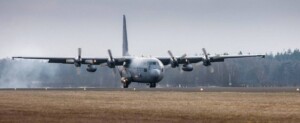PM Hamdok stresses the importance of refugee support and solidarity
Sudan’s Prime Minister and current chairman of the Intergovernmental Authority on Development (IGAD) Abdallah Hamdok stressed the importance of support to refugees and internally displaces people (IDPs) in the process of implementing peace agreements.
 A group of internally displaced people, some of them in bad health condition, under a bush in Zamzam camp in North Darfur, 2014 (UNAMID)
A group of internally displaced people, some of them in bad health condition, under a bush in Zamzam camp in North Darfur, 2014 (UNAMID)
Sudan’s Prime Minister and current chairman of the Intergovernmental Authority on Development (IGAD) Abdallah Hamdok stressed the importance of support to refugees and internally displaced persons (IDPs) in the process of implementing peace agreements.
The prime minister held a meeting with the Special Envoy for the Horn of Africa of the United Nations High Commissioner of Refugees (UNHCR) and its ambassador, Mohamed Abdi Eidi Affi, yesterday.
During the meeting, Hamdok stressed the importance of finding a solution to the problems faced by internally displaced people and refugees when implementing the peace agreements of both Sudan and South Sudan.
The prime minister further stressed that Sudan will do its utmost best to make the Sustainable Solutions’ Initiative for the issues of the IDPs, refugees, returnees a success through its current chairmanship of the IGAD.
It also promised to work on hosting displaced communities and refugees in Sudan and the Republic of South Sudan.
Displaced and refugees in Sudan
According to UNHCR statistics, Sudan hosts more than 2.5 million IDPs and over 1.1 million refugees and asylum-seekers, 30% of which live in refugee camps.
Most IDPs live in Darfur or Korfodan where violence is still ongoing. Their number has gone up by more than 660,000 in the past 1.5 years, especially in Darfur.
The region has seen many violent conflicts in the past years that are reminiscent of the old regime of dictator Omar Al Bashir and his campaign of ethnic discrimination and genocide during the war in Darfur.
During that war, millions of people fled their homes and are still unable to return due to the ongoing insecurity. They often have nothing left.

She was displaced by conflict in Darfur in 2004 (UNHCR – Will Swanson)
Zahra Abdulrahman, for example, was forced to flee after armed men attacked her village at the foot of the Jebel Si mountains, 35 kilometers east of Kabkabiya in North Darfur.
“Armed men came from everywhere – from the desert, the valleys, and the mountains. I saw people getting killed so I ran”, she told the UNHCR last year.
In 2010, the Norwegian Refugee Council’s Internal Displacement Monitoring Centre reported that Sudan had over 4.9 million displaced people, the highest number of any country in the world at that time.
Last year, Sudan saw an ‘unseen’ influx of refugees from Ethiopia when the conflict in Tigray erupted. Women, men, and children crossed the border at a rate of 4,000 per day to seek shelter in Sudan.

Darfur violence
Darfur has seen many attacks and clashes in recent months. On Tuesday, Radio Dabanga reported that at least 36 people were killed in clashes in South Darfur. West Darfur’s capital El Geneina, for example, was engulfed by deadly violence twice this year. In April, over 144 people died and in January at least 163 people were killed as Arab herdsmen again targeted Masalit people, a sedentary African tribe.
The region has a long history of strife between often Arab herding tribes and non-Arab African herders or sedentary farmers, who were exploited by the previous regime of dictator Omar Al Bashir. Al Bashir founded and supported the Janjaweed militia, which carried out many attacks on farmers in Darfur.
Al Bashir employed these militias, largely made up of Arab nomads, to repress a revolt over ethnic discrimination in the region, mainly targeting non-Arab African farmers.

clashes between Government and rebels in 2011 (UNAMID – Albert González Farran)
During the regime, herders from countries west of Sudan were also invited to inhabit the areas where Darfuri farmers used to live. They torched and destroyed many of the villages. Militias such as the Rapid Support Forces* (RSF), set-up by the Al Bashir regime, protected these settlers in Darfur for years.
According to investigations last year, the RSF carried out nearly 100 attacks against towns, farms, and civilians in North Darfur and Jebel Marra since 2016.
** Officially, the RSF militia, set up by the ousted Al Bashir regime in 2013, was integrated into the Sudan Armed Forces in August 2019. At the same time, however, the militia stays a force unto itself. The RSF, which grew out of the Janjaweed who fought for the Sudanese government in Darfur, is widely believed to be responsible for atrocities in the country in the past seven years. Many Sudanese hold the paramilitaries also accountable for the violent break-up of the Khartoum sit-in on June 3, 2019.











 and then
and then